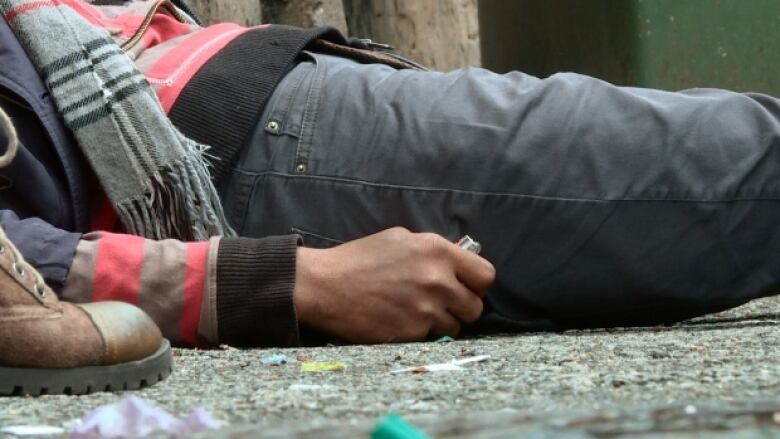Hamilton police won't commit to accepting province's offer of free naloxone kits
Police say they'll 'review details relating to supplies, storage and appropriate administration of the drug'

Hamilton police won't commit to sending frontline officers out with life-saving anti-overdose kits, even after Ontario announced the province will pay for the kits for police and firefighters.
"We recognize the continued need for action on the opioid crisis, and have announced several new measures to fight it," Ontario Health Minister Eric Hoskins said.
Chief Eric Girt has been opposed to the idea of officers carrying the naloxone kits, even as fellow chiefs in the province called for Ontario's help in funding the kits and the local union said it would help protect officers.
Thursday, Hamilton Police Service said in a news release it appreciates "the province's proactive approach on the increase in opioid-related issues."
"This was great news from the province," said Hamilton police spokeswoman Jackie Penman.
But police say they still need to "review details relating to supplies, storage and appropriate administration of the drug."
Chief's previous position: 'This is a medical crisis'
Members of police forces across the country have used naloxone on themselves and members of the public who've been exposed to fentanyl.
Meanwhile, Girt told members of the police oversight board in March that "Our strategy is not to get into the business of Narcan (naloxone) distribution."
He said paramedics were better equipped to handle the naloxone delivery.

"This is a medical crisis, in my view," he said then. "Our role is to make sure that that person gets the medical help with those people who have that skill set."
Girt did not waver from that position when police union president Clint Twolan called in June for officers to be issued the kits for their own protection.
On Thursday, Twolan cheered Hoskins' announcement on behalf of officers and police civilians who "are exposed to the opioid risks."
"This decision will undoubtedly save lives, both those of police and the citizens we serve," he said on Twitter.
'We'll definitely review'
Thursday, Penman said she couldn't speak for the chief about whether he was open to changing his position to receive the free kits from the province.
"We'll definitely review the contents of the (health minister's) release," she said.
When injected into a person who is overdosing on prescription opioids, including morphine, heroin, or fentanyl, the naloxone can reverse the effects for about 10 minutes – long enough to get the victim to an emergency room.
Overdose is currently the third-leading cause of accidental death in Ontario, with one death by overdose every 13 hours.
In the last week of November, 41 patients were seen in Hamilton emergency rooms for "drug misuse or overdose," which can include drugs other than opioids, according to statistics published by the city. Twenty-one were suspected overdoses.

